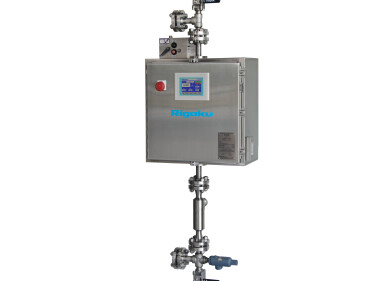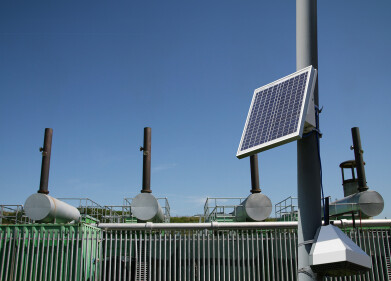Measurement and Testing
Norway and Russia Set to Discuss the Barents Sea – Again
Dec 10 2016
Russia is no stranger to controversial oil deals. Now the nation is once again in the spotlight for a transaction that could see it collaborate with Norway in a bid to kick-start oil and gas work in the Barents Sea.
With a provocative history dating back to the Soviet era, Barents Sea maritime borders have long been a key point of dispute for both Russia and Norway. In September 2010, a treaty signified a historic end to four decades of divergence. In the spotlight was a 12% slice of the Barrents Sea pie, an area that’s coveted for its bounty of oil and gas reserves.
A collaborative approach to the Barrents Sea bounty
Six years after resolving clashes over ownership, Russian Natural Resources Minister Sergei Donskoy has confirmed that he plans to enter into negotiations with Norway regarding oil and gas work in the Barents Sea. The nation has revealed that it plans to review options for joint opportunities in areas that were formerly under ownership dispute.
At the top of the agenda are discussions regarding cross-border oil and gas field cooperation, with Donskoy stating that "work of Russia and Norway in the Barents Sea in the so-called former disputed area is of a mutual strategic interest.” Other points of interest include a review of opportunities for bilateral economic cooperation, as well as the possibility of launching seismic research projects on the shared borders. This would help both nations gain a better understanding of the region’s potential, and determine whether or not to pursue exploration projects.
Norway sets its sights on European market
While border disputes have thwarted major oil and gas projects in the past, Swedish energy company Lundin Petroleum is now breaking ground in the Barents Sea. In late November it made a major discovery in a frontier area, with the Norwegian government confirming that it could hold between 18 million and 44 million barrels of recoverable oil, as well as up to 70 billion cubic feet of recoverable gas.
For Norway, both the discovery and the collaborative talks with Russia represent an opportunity to fortify its status as a keynote oil and natural gas exporter to European nations. In particular, those wanting to lessen their dependence on Russian natural gas.
As well as oil, the Barents Sea is also rich in natural gas. Located in the north-western part of Russia’s South Barents Basin, the Shtokman field is one of the world's largest natural gas fields. ‘How to Analyse H2s, All Mercaptans, THT and Total Sulphur for Monitoring Natural Gas or Gaseous Fuels in Metering Stations’ spotlights the latest solutions being used to measure and control the level of odorant species in natural gas, with Chromatotec’s energyMEDOR technology leading the pack.
Digital Edition
PIN 25.5 Oct/Nov 2024
November 2024
Analytical Instrumentation - Picturing Viscosity – How Can a Viscometer or a Rheometer Benefit You? - Sustainable Grease Formulations: Evaluating Key Performance Parameters and Testing Method...
View all digital editions
Events
Dec 03 2024 Dusseldorf, Germany
Dec 08 2024 Anaheim, CA, USA
Turkey & Black Sea Oil and Gas
Dec 11 2024 Istanbul, Turkey
Dec 19 2024 Aurangabad, India
Jan 20 2025 San Diego, CA, USA



















